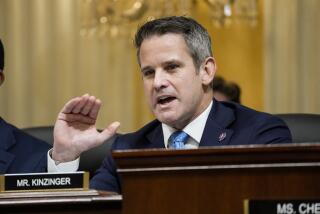Soviets Plan Afghan Exit for May 15
- Share via
MOSCOW — Mikhail S. Gorbachev said today that Soviet troops will begin leaving Afghanistan on May 15 if the U.N.-sponsored talks on the conflict result in a settlement.
It was the first mention by the Soviet leader of a specific date for the withdrawal of Soviet troops from Afghanistan.
The Soviet leader said the withdrawal would be completed within 10 months. He said the date for beginning the pullout was based on the assumption that negotiations in Geneva between Afghanistan and Pakistan will result in an agreement no later than March 15.
Gorbachev said in the event an agreement is signed before March 15, “the withdrawal of troops will, accordingly, begin earlier.”
Troops Sent in 1979
The Soviets sent troops into Afghanistan in December, 1979, to help the Marxist government fight a Muslim insurgency. About 115,000 Soviet troops remain.
The Communist Party general secretary spoke in a statement carried by the official Soviet news agency Tass.
The Reagan Administration cautiously welcomed Gorbachev’s statement.
“It sounds like a positive step and we hope it is, but we need to see the fine print (to see if there are any conditions). We’ve got to know what it means,” White House spokesman Marlin Fitzwater said.
“We welcome Gorbachev’s apparent willingness to address this question,” said Charles E. Redman, the State Department spokesman in Washington. “Naturally, we want to see further details on Gorbachev’s offer and consult with the Pakistanis.”
By End of Year
Soviet Foreign Minister Eduard A. Shevardnadze said in Kabul, the Afghan capital, last month that the Soviet Union hoped to end its involvement in Afghanistan this year.
On Jan. 11, the Communist Party newspaper Pravda said the Soviet Union could begin pulling its forces out by May 1.
Gorbachev said the Soviet leadership and the government of Afghan President Najib agreed that a large proportion of Soviet troops could be pulled out at the beginning of the withdrawal period.
He also said the withdrawal is not linked to Najib’s efforts to promote national unity, a move that the seven major Afghan rebel groups say is merely a disguise for continued dominance by his People’s Democratic Party of Afghanistan.
Withdrawal from Afghanistan is one thing, the Soviet leader said. “National reconciliation and the establishment of a coalition government is another thing. This is a purely internal Afghan issue.”
Gorbachev’s statement was an indication that the Kremlin is no longer insisting that Najib’s pro-Marxist party have a role in the country’s political life after Soviet soldiers leave.
Kremlin Relations Soured
The Kremlim’s intervention in Afghanistan soured Kremlin relations with many Muslim and Third World countries and doomed detente between the superpowers.
U.N.-sponsored talks between Afghanistan and Pakistan, which represents the guerrillas, have made progress but have been stuck on developing a timetable for the Soviet withdrawal.
One of the guerrilla leaders said Saturday that the Muslim rebels will not follow any peace agreement unless they are recognized as a main party in the negotiations.
“We will not abide by any settlement unless the (guerrillas) have a direct part in the negotiations,” said Yunis Khalis, who heads the seven-party alliance of Afghan Muslim guerrillas.
Gorbachev’s remarks indicated that the Soviets were offering a timetable that they hope will bring a rapid settlement of the negotiations, which resume this month.
More to Read
Sign up for Essential California
The most important California stories and recommendations in your inbox every morning.
You may occasionally receive promotional content from the Los Angeles Times.













